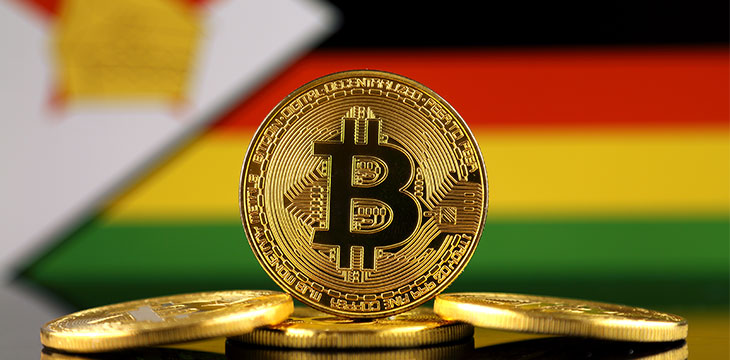|
Getting your Trinity Audio player ready...
|
After Nigeria became the first country in Africa to launch its central bank digital currency (CBDC), Zimbabwe is weighing being the first to legalize BTC for payments. According to one government official, the Southern African country is in consultations with private sector experts on the feasibility of BTC as legal tender, following El Salvador’s footsteps.
Brigadier General (Retired) Charles Wekwete, permanent secretary and head of the e-Government Technology Unit in Zimbabwe, attended a local tech event in which he discussed the government’s BTC consideration, local loutlet Bulawayo 24 News reports.
Members of the Computer Society of Zimbabwe asked him what the government was doing with digital currencies as the world moves to adopt them. He responded that they are still a grey area for most governments, and Zimbabwe is no different.
“Governments are still trying to understand and properly trying to create policies on how to deal with it,” Wekwete said.
In Zimbabwe’s case, the government is trying to understand the implications of legalizing digital currencies “because they are a fundamental departure from previously known financial instruments and there are a lot of fears about cross border movement of funds, money laundering, externalization of funds and illicit flow of funds to fund illicit issues.”
The official went on to reveal that there have been considerations of making BTC a legal tender, as El Salvador did. Currently, the government is in consultations with experts and is gathering views from various sectors of the society, he said.
“Sooner or later Government will make statements but we have not gotten there yet, the consultative process is already underway,” he said.
Zimbabwe is a country that has faced one of the most unstable monetary systems in the world in the past decade. Due to hyperinflation, the government has tried to switch between currencies to curb it, leading to more uncertainty.
In 2009, the country allowed the U.S. dollar and other foreign currencies to be used as legal tender after hyperinflation decimated its local currency. A decade later, in 2019, it outlawed their use.
Turning to BTC would be an even bigger risk for a country whose economy has been struggling for the better part of the 21st century. The average wage per month is $253, with roughly three-quarters of the population living on about $5 a day.
Zimbabwean people will be forced to fork out a significant portion of their daily budget just to afford one BTC transaction. According to BitInfoCharts, an average BTC transaction as of November 8 was $3.7. This would be three-quarters of the daily average spending for an overwhelming majority of the population. If they have to make more than one transaction (and most people do), they won’t be able to afford the fees alone.
And then there’s the waiting time for the transactions. The average transaction speed for BTC on November 8 was 10+ minutes. This is simply unrealistic for anyone looking to pay for coffee, groceries, gas, Uber, or any other day-to-day transaction.
Zimbabwe would be best served by a digital currency whose fees are negligible, allowing the people to transact as many times as they wish without worrying about losing their money in the process. Bitcoin SV’s transaction fee averages $0.001. For comparison, one BTC transaction would finance over 3,500 BSV transactions.
Aside from the fees, Bitcoin SV offers real-time transactions, allowing Zimbabweans to make their day-to-day transactions seamlessly.
Bitcoin SV has already proven that it’s the only enterprise blockchain that scales unbounded and goes beyond the transfer of value. It’s already underpinning the national ledger for the island nation of Tuvalu. Zimbabwe would greatly benefit from building on Bitcoin SV, introducing transparency and accountability to a government that’s ranked 157th globally for corruption.
Watch: CoinGeek New York presentation, BSV Venture Investments: It’s Time to Scale Up

 02-18-2026
02-18-2026 




